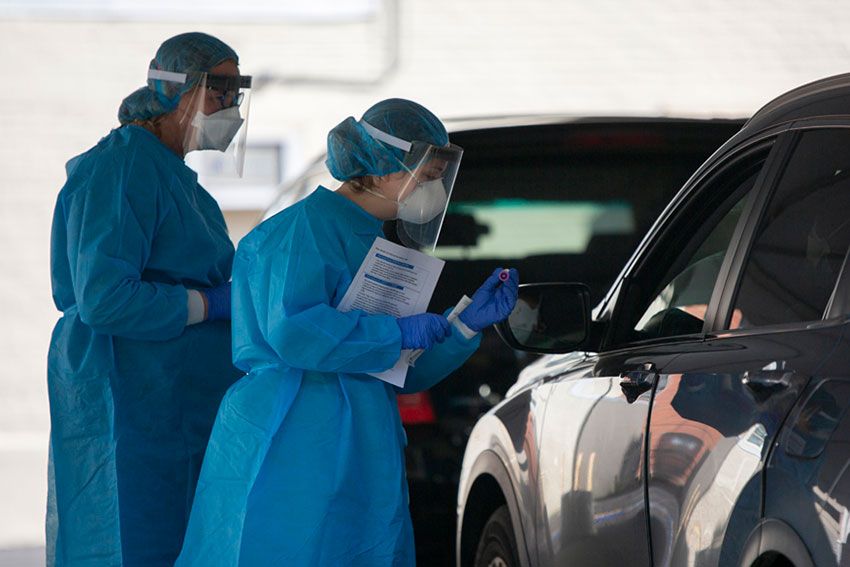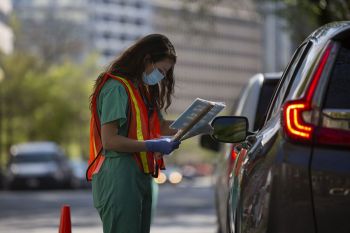
In late March, as COVID-19 cases in the District of Columbia continued their steady rise, Mayor Muriel E. Bowser activated the Medical Reserve Corps (MRC), which supports the DC Department of Health by recruiting, training, and deploying volunteers to assist with emergencies.
As Director of Event and Operational Medicine for the George Washington University (GW) Medical Faculty Associates MRC, Drew Maurano, PA-C, has been front and center in the city’s efforts to offer COVID-19 testing and response.
“DC DOH asked us at GW to be the trainers and the planners to help them develop multiple drive-through testing sites in D.C. and a specific drive through testing process for first responders, such as DC Fire and EMS and the Metropolitan Police Department,” said Maurano, who also serves as associate clinical professor of emergency medicine at the GW School of Medicine and Health Sciences (SMHS).
The DC MRC has already conducted two trainings, with more to come. Volunteers include community members, health care professionals, and medical students.
Second-year SMHS MD student Meg Keswani joined the MRC last year because it provided her an opportunity to be out in the field helping during large scale events or responding to urgent public health needs, as well as being able to serve her community.
When the call came from the DC MRC for COVID-19 training, Keswani said she “didn’t give it a second thought and immediately responded as attending.”

“I felt it was my duty to do my part and help those who need it in whatever capacity I can,” she said.
The training she attended consisted of a debrief on COVID-19 and a review of the zones of care in pre-hospital management, followed by skills stations. “We reviewed donning and doffing our personal protective equipment, reviewed the technique for administering a nasopharyngeal swab to test for COVID-19, and we were fit tested for an N95 mask,” she said.
The trainings were preparation for two recent drive-through testing sites, one at the DC Fire Academy for testing for members of the fire and police departments, and one at United Medical Center in southeast D.C. for community members, especially to offer testing access to residents of Wards 7 and 8.
On April 6, Maurano added, a drive-through testing site opened on the GW Foggy Bottom Campus with support from GW, the GW Hospital, and GW MFA.
He said that in the weeks ahead, the MRC is looking at increasing the number of testing sites in the city to make sure anyone in D.C. who needs testing has it available to them.
The organization also will serve as an additional workforce to assist with a mass surge should cases skyrocket. “We can assist the hospitals or help establish mass care sites or alternative care sites,” he explained. “But we haven’t gotten to that point and hopefully don’t.”
The MRC is always looking for volunteers, Maurano said. He added that people with medical training can volunteer to offer more patient-facing support, while non-medical volunteers can assist with administrative and logistical support.
“In times like this, I firmly believe in rallying together as a community,” noted Keswani, “I am willing to use this training and any other skills I have to help anyone who needs it.”


